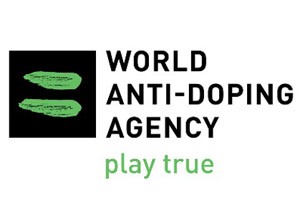Deal will boost cooperation and combat drug trafficking
 The fight against doping has taken an important step forward following the signature of a memorandum of understanding (MOU) between the World Anti-Doping Agency (WADA) and the World Customs Organization (WCO).
The fight against doping has taken an important step forward following the signature of a memorandum of understanding (MOU) between the World Anti-Doping Agency (WADA) and the World Customs Organization (WCO).
Under the deal signed in the WCO’s headquarters in Brussels on Friday, the national and international anti-doping measures referred to in the UNESCO ‘International Convention against Doping in Sport’ will be given increasing support. The cooperation between the two bodies will be increased and will positively impact the collection, storage and exchange of information, while there will also be greater communication between the two and the setting up of information sessions and seminars.
“This MOU is a significant development for WADA,” said WADA Director General David Howman. “It will enable the agency to increase intelligence on upstream perpetrators involved in doping activities, the illegal organizations and individuals that provide doping substances to the sporting world.”
“We are grateful to the WCO for their commitment to the fight against doping in sport. The partnership sends out another very clear message that there is strong unity amongst agencies across the world to eradicate all forms of doping – not just for the sake of sport, but for the health and well being of society as a whole.”
With over 120 different types of EPO now available, sporting bodies are looking for additional methods other than direct detection to catch those using the banned substance. One device is the UCI’s biological passport, which can help detect changes in blood chemistry. The second is with the cooperation of police forces and customs officials; in other words, looking for the product before it is introduced into the athlete’s system.
WCO Secretary General Kunio Mikuriya emphasised the importance of the work, and also of the agreement. “The WCO is committed to working with its international partners to combat all forms of illicit trade, including the trade in illegal, counterfeit and unlicensed pharmaceutical products,” he stated.
“This MOU will facilitate relations between WADA and the WCO, provide us with a concrete basis for further cooperation, contribute to a healthier and safer international sporting environment, and encourage Customs administrations in meeting one of their core aims, namely, the protection of society.”
One example of the cooperation between anti-doping officials and external bodies is the current investigation into claims of doping at the US Postal Service and other teams. Federal agents and USADA met European police and anti-doping agents several months ago to exchange information; it is thought that there is also a customs input into the inquiry, particularly after suggestions that banned substances may have been transported from one country to another.